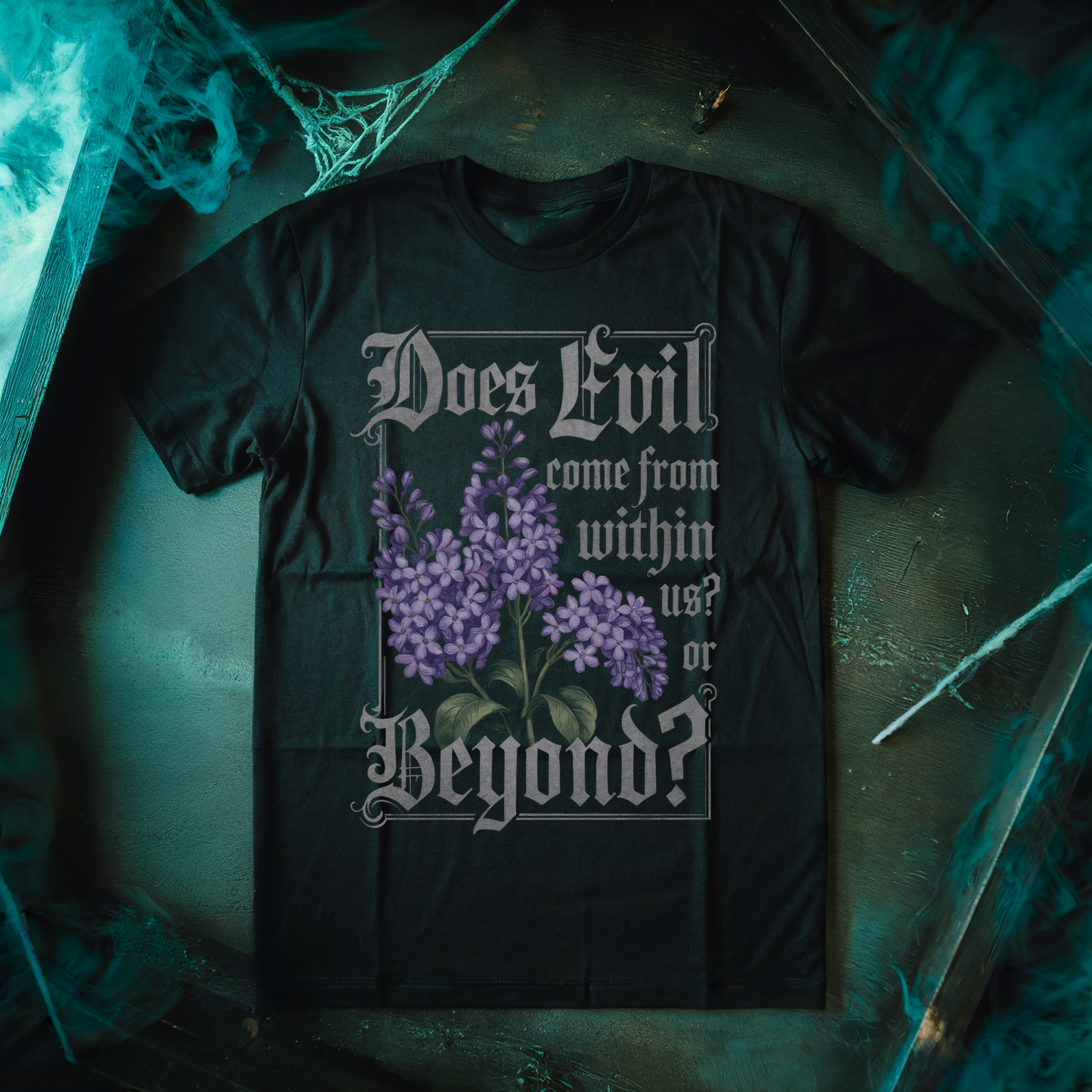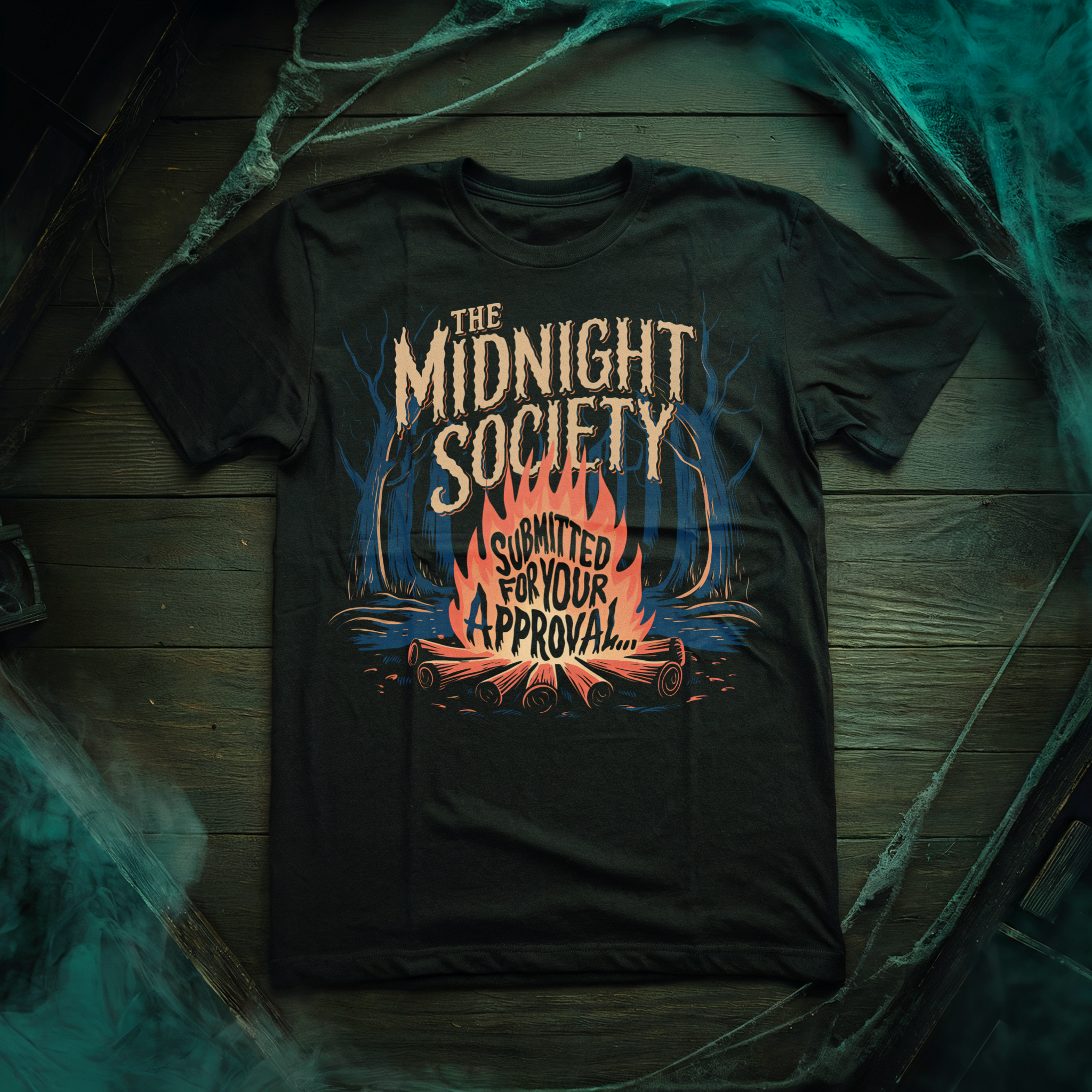Cults are all the rage. Escaping cults, joining cults, discussing cults, it’s been the year of the cult in horror film! Director Chad Crawford Kinkle is no stranger to the subgenre. His first feature Jug Face (2013) follows a backwoods community (read: cult) who must make human sacrifices to a creature in a pit. Now, in his new film, Dementer, Kinkle is tackling what it means to escape a cult, but from a much more personal angle.
Katie (Katie Groshong, A Measure of the Sin, Jug Face) is trying to start over after escaping a backwoods cult. Disjointed and dizzying flashbacks show a charismatic leader (Larry Fessenden, Jug Face) carefully detailing the steps to avoid “the devils” and walking Katie through disturbing rites and rituals. She wears a massive brand on her back of a circle topped with a crescent shape that marks her membership in the group. But Katie wants to leave that all behind her and she starts a new job at a center that cares for developmentally disabled adults.
“[Dementer] is an experience that does not want to give away its secrets easily.”
Here she befriends Stephanie (Kinkle’s sister, Stephanie Kinkle), a woman with Downs Syndrome that Katie believes has become a target for “the devils” the cult leader warned about. Whenever she sees Stephanie, she experiences strange visions. So, Katie believes she must protect Stephanie through increasingly strange rituals that involve cow hearts and barbecued cats. But, is Katie going too far to protect someone who doesn’t really need her help? Kinkle constructs a nightmarish vision of trauma and caretakers who believe they’re helping but don’t understand the line between help and harm.
Importantly, Dementer is not a film that uses the developmentally disabled as a punchline. Often, disability is used as a monstrosity in horror, an affliction that renders the human body into something other than human. But Kinkle rejects that trope as he centers the film on his sister, Stephanie, and works to portray the lives of those who live in group homes as nothing more than ordinary. Katie’s obsessive focus on Stephanie is disturbing and troubling, but it never ventures into the exploitative. Kinkle is careful to create this disturbing narrative without wandering into a tale of outright abuse. Rather, he focuses on Stephanie’s trauma and obsession as the source of horror instead of Stephanie or any of the other residents.
![dementer knife 2021 [Review] DEMENTER is A Dizzying and Hypnotic Look At Cult Trauma 11 dementer-knife-2021](https://nofspodcast.com/wp-content/uploads/2019/10/dementer-knife-2021.jpg)
Kinkle is able to achieve such a narrative through a style of shooting akin to cinema verite. This isn’t a documentary by any means, but the cinematography makes it feel that way. Almost everyone on screen is not an actor and the camera follows Katie like it’s documenting a day in her life. At times the story seems to progress slowly as the camera opts to portray the slow moments of life in the group home rather than on horrifying imagery, but that’s what makes Dementer special. This is a film about normalizing the lives of the developmentally disabled, who spend their days doing puzzles, coloring, going on outings, and interacting with their caretakers. They are not monsters; they are people.
Much of Dementer’s horror comes from its nauseating (in a good way) and relentless sound design that plagues Katie during flashbacks to her time in the cult. Fessenden’s voice, a deep tone that is both erotic and intimidating, mumbles ritual instructions and counts to thirteen. Small cymbals clang together. A bow is drawn over a lone violin which creates a blood-curdling cacophony. Katie’s visions are unsettling, but the sound design paired with the visuals makes it all the more uncomfortable. The persistent tones and repetitive counting assault your eardrums, making you feel like you’re joining Katie in a hellish vision from the past.
Dementer requires a little bit of imagination to fill in the gaps of Katie’s time in the cult, which makes it all the more unsettling. Unlike Jug Face, which follows a rather straightforward narrative structure, Dementer only gives flashes of context. There is no backstory to understand or rules to learn. The film is an experience that does not want to give away its secrets easily. It is not about narrative here, but about emotions that range from fear and anguish to anger and determination.
Kinkle has created something extraordinary with Dementer that must be experienced to truly understand. It is not your typical horror movie full of scares and satisfying conclusions. It instead opts for psychological torment, confusion, and nausea to tell a tale of cult-induced trauma. On top of that, he works against tropes about the developmentally disabled and make them characters rather than people to be feared. Dementer asks that you give yourself to it. I did so with enthusiasm.
“[…] not your typical horror movie full of scares and satisfying conclusions.”
Dementer had its world premiere on Thursday, October 10 at the Nashville Film Festival. Have you seen Jug Face? Are you excited for Kinkle’s new film? Let us know your thoughts on Twitter, Instagram, Reddit, and in the Horror Fiends of Nightmare on Film Street Facebook group!





![Still 02 1 [Review] DEMENTER is A Dizzying and Hypnotic Look At Cult Trauma 10 Still 02 1](https://nofspodcast.com/wp-content/uploads/2019/10/Still_02-1.jpg)



